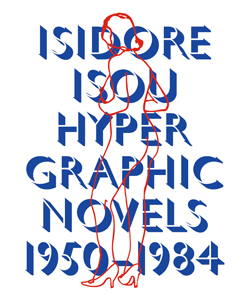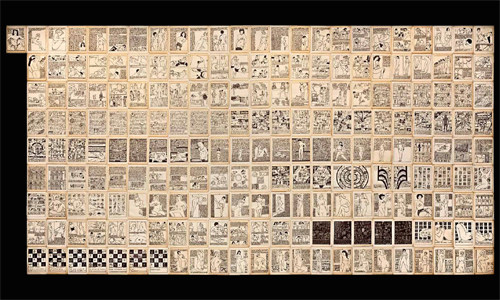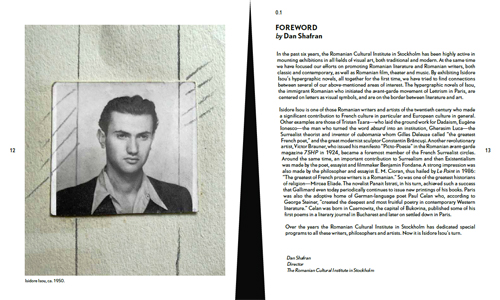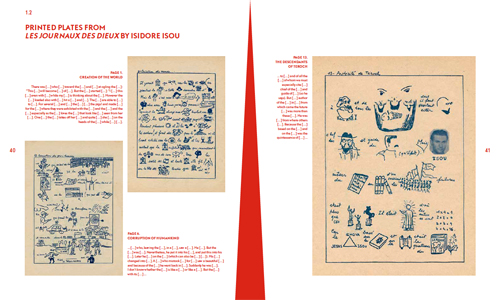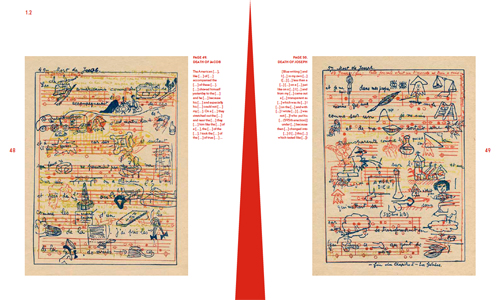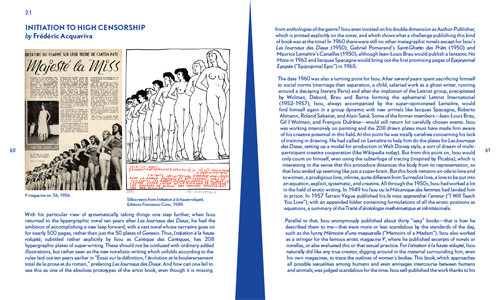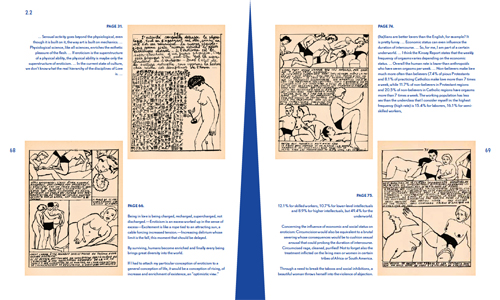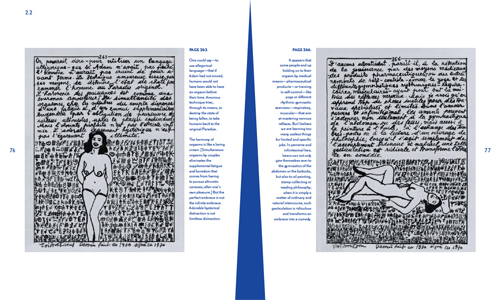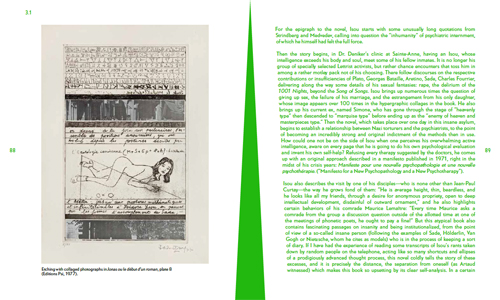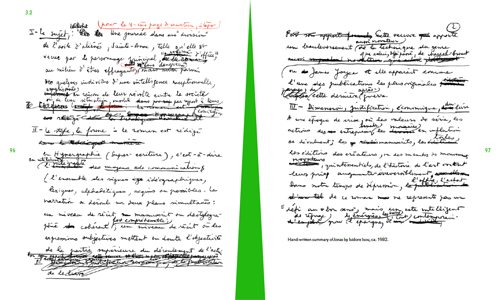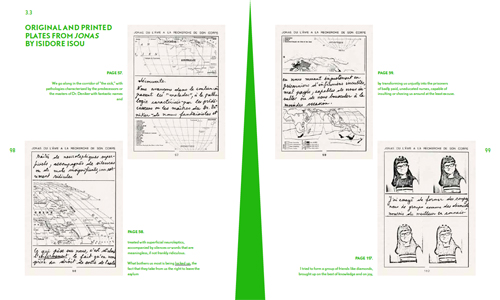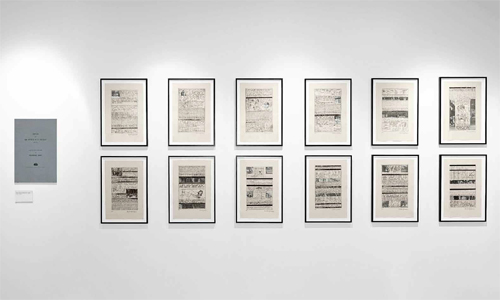First publication dedicated to Isou's extensive work with hypergraphics, with essays by
Frédéric Acquaviva, Jonas (J) Magnusson and Cosana Nicolae Eram, interviews with
Broutin, Maurice Lemaître and Roland Sabatier, as well as first time translations and reproductions from Isou's three hypergraphic novels
Les Journaux des Dieux (1950),
Initiation à la haute volupté (1960) and
Jonas (1977-84).
This catalogue focuses on one unique but essential aspect of Isidore Isou‘s work: his innovative and ultra-contemporary contribution to the novel, especially what he called the hypergraphic novel.
The hypergraphic novel is a novel that is no longer restricted to using words and sentences, but integrates all the customary signs of communication, wrenched from their initial function in order to become the engines for overthrowing the art of prose and narration. It is a super-writing which integrates all the world's alphabets (ancient, present, or invented), codes (morse, braille, musical notation, rebus), signs of communication, pictograms, prophetically anticipating the possibilities of computers and the Internet. This post-Joycean multi-narration, which from a distance could look to our modern eyes like trash comics half a century before their time, sometimes superimposes several layers of different colors, like screen filters in computer programs—call it the multi-colored novel—resulting in wild creations of an astonishing modernity.
Published on the occasion of the eponymous exhibition at the Romanian Cultural Institute in Stockholm in 2012.
Isidore Isou (1925, Botosani, Romania – 2007, Paris), the ingenious Romanian poet, artist, economist, novelist, film-maker, choreographer and theoretician, created in 1945 the last avant-garde movement to attempt to overthrow everything –
Lettrism, a movement that would embrace personalities as diverse as Gabriel Pomerand, Maurice Lemaître, Gil J Wolman and Guy Debord. Isou is the author of a huge body of work centered on the act of creation, for which he proposed a method,
Creatics, which is a systematic approach to understanding and grasping the mechanics of creation.
See also
Frédéric Alix : Penser l'art et le monde après 1945 – Isidore Isou, essai d'archéologie d'une pensée;
Fragments pour Isidore Isou.
Edited by
Frédéric Acquaviva and Simona Buzatu.
Texts by
Frédéric Acquaviva,
Broutin, Isidore Isou, Maurice Lemaître, Jonas (J) Magnusson,
Cosana Nicolae Eram, Roland Sabatier, Dan Shafran.
Graphic design by Paul Dersidan (BLAU Creative).
Published by the Romanian Cultural Institute in Stockholm.
published in December 2012
English edition
20 x 24 cm (softcover)
136 pages (color ill.)
ISBN : 978-91-979551-1-9
EAN : 9789197955119
sold out

